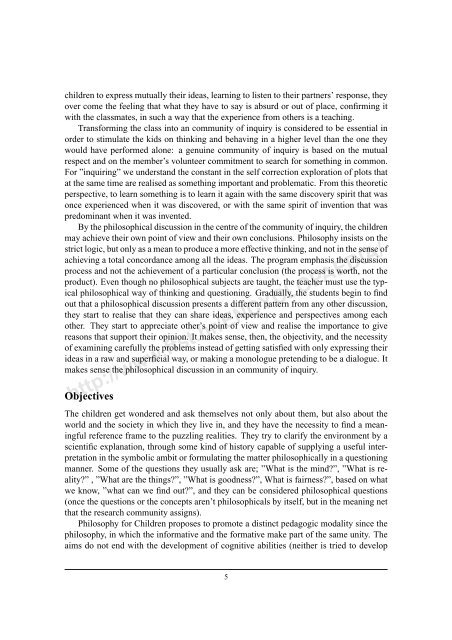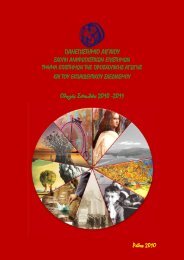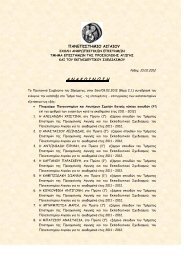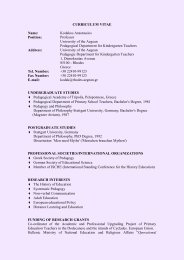Philosophy for Children
Philosophy for Children
Philosophy for Children
Create successful ePaper yourself
Turn your PDF publications into a flip-book with our unique Google optimized e-Paper software.
children to express mutually their ideas, learning to listen to their partners’ response, they<br />
over come the feeling that what they have to say is absurd or out of place, confirming it<br />
with the classmates, in such a way that the experience from others is a teaching.<br />
Trans<strong>for</strong>ming the class into an community of inquiry is considered to be essential in<br />
order to stimulate the kids on thinking and behaving in a higher level than the one they<br />
would have per<strong>for</strong>med alone: a genuine community of inquiry is based on the mutual<br />
respect and on the member’s volunteer commitment to search <strong>for</strong> something in common.<br />
For ”inquiring” we understand the constant in the self correction exploration of plots that<br />
at the same time are realised as something important and problematic. From this theoretic<br />
perspective, to learn something is to learn it again with the same discovery spirit that was<br />
once experienced when it was discovered, or with the same spirit of invention that was<br />
predominant when it was invented.<br />
By the philosophical discussion in the centre of the community of inquiry, the children<br />
may achieve their own point of view and their own conclusions. <strong>Philosophy</strong> insists on the<br />
strict logic, but only as a mean to produce a more effective thinking, and not in the sense of<br />
achieving a total concordance among all the ideas. The program emphasis the discussion<br />
process and not the achievement of a particular conclusion (the process is worth, not the<br />
product). Even though no philosophical subjects are taught, the teacher must use the typical<br />
philosophical way of thinking and questioning. Gradually, the students begin to find<br />
out that a philosophical discussion presents a different pattern from any other discussion,<br />
they start to realise that they can share ideas, experience and perspectives among each<br />
other. They start to appreciate other’s point of view and realise the importance to give<br />
reasons that support their opinion. It makes sense, then, the objectivity, and the necessity<br />
of examining carefully the problems instead of getting satisfied with only expressing their<br />
ideas in a raw and superficial way, or making a monologue pretending to be a dialogue. It<br />
makes sense the philosophical discussion in an community of inquiry.<br />
http://www.ffst.hr/ENCYCLOPAEDIA/<br />
Objectives<br />
The children get wondered and ask themselves not only about them, but also about the<br />
world and the society in which they live in, and they have the necessity to find a meaningful<br />
reference frame to the puzzling realities. They try to clarify the environment by a<br />
scientific explanation, through some kind of history capable of supplying a useful interpretation<br />
in the symbolic ambit or <strong>for</strong>mulating the matter philosophically in a questioning<br />
manner. Some of the questions they usually ask are; ”What is the mind?”, ”What is reality?”<br />
, ”What are the things?”, ”What is goodness?”, What is fairness?”, based on what<br />
we know, ”what can we find out?”, and they can be considered philosophical questions<br />
(once the questions or the concepts aren’t philosophicals by itself, but in the meaning net<br />
that the research community assigns).<br />
<strong>Philosophy</strong> <strong>for</strong> <strong>Children</strong> proposes to promote a distinct pedagogic modality since the<br />
philosophy, in which the in<strong>for</strong>mative and the <strong>for</strong>mative make part of the same unity. The<br />
aims do not end with the development of cognitive abilities (neither is tried to develop<br />
5






